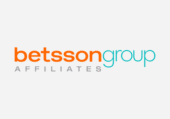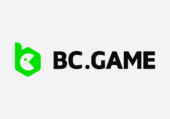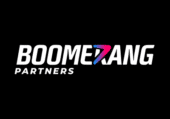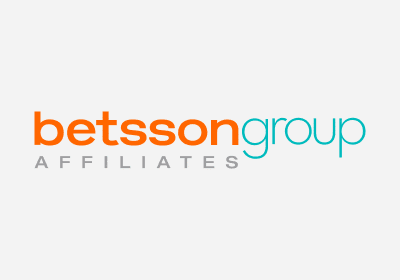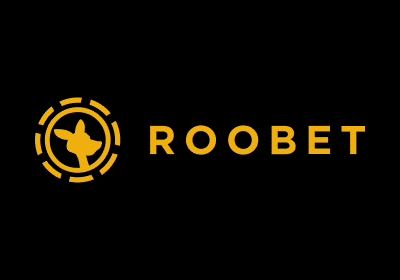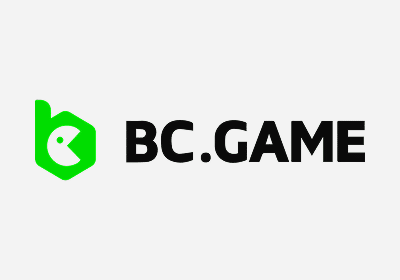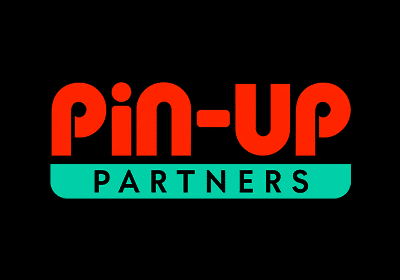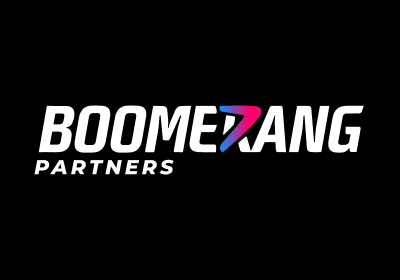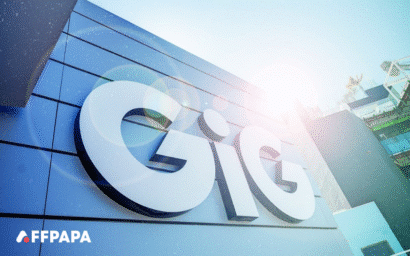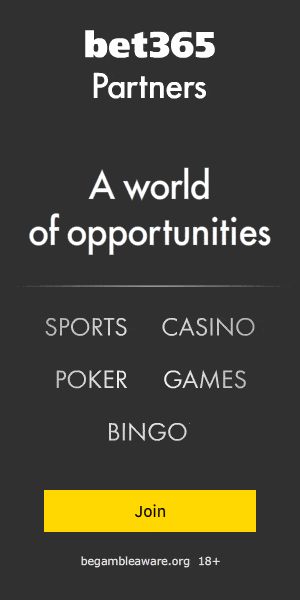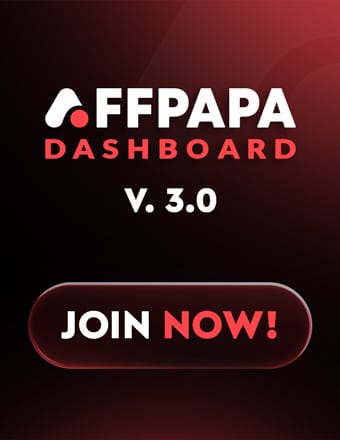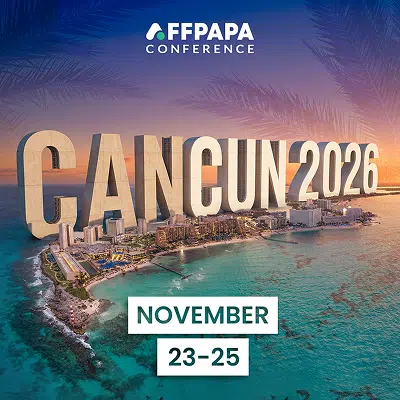iGaming Commissions Explained: CPA, RevShare, Hybrid & Fixed
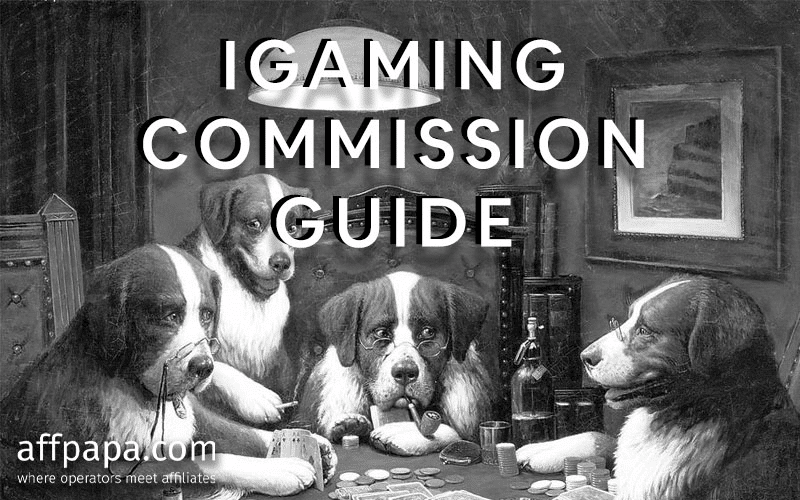
Behind every strong affiliate program lies a smart iGaming commissions plan. This article will guide you through everything you need to know about casino affiliate commissions to help set up your own winning strategy.
Table of Contents
How do iGaming commissions work?
Casino affiliate commissions in iGaming are a means of paying affiliates for the services they provide, i.e. generating traffic and bringing in a targeted audience. How do iGaming affiliates get paid? Operators reward affiliates for already gained revenue through iGaming commissions.
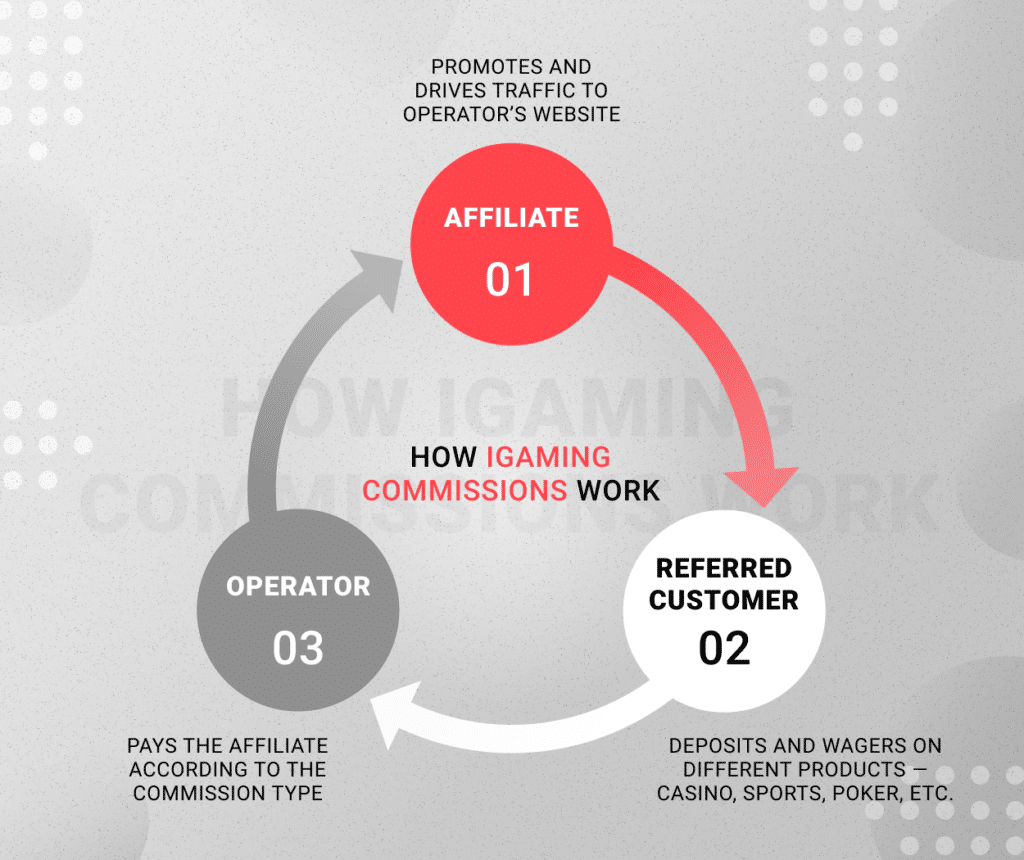 The concept of iGaming commissions is pretty straightforward once you understand how it works:
The concept of iGaming commissions is pretty straightforward once you understand how it works:
- The affiliate is promoting the company’s offered services and the one driving traffic to the company’s website.
- The operator is partnering with an affiliate to bring in clients for their website, raise sales, advertise their services, or enhance engagement.
- Networks are affiliate programs comprising multiple iGaming brands under one roof and offering to promote those brands to affiliates.
To the process of finding partners easier, AffPapa, the ultimate iGaming directory, brings the two parties (affiliates and operators) together, providing them with all the necessary tools to help them cooperate independently.
Top 4 iGaming commission models
Choosing the right type of iGaming commissions is essential for keeping your affiliates engaged and satisfied. The most widely used models of casino affiliate commissions used by affiliate programs are CPA and RevShare, Fixed Fee, and Hybrid.
CPA iGaming Commission
One of the most common kinds of iGaming commissions in the market is cost-per-acquisition (also known as cost-per-action). It is quite a simple concept when you gain insight into how it works. The CPA iGaming commission implies that the affiliate receives a one-time payment when a player they linked accomplishes an activity (an agreed-upon action) on the casino website, such as making first-time deposits (FTD), simply registering, or placing bets, usually ranging somewhere between 50-250$.
For example, NetBet (shown below) has CPA iGaming commission ranging from 13.00€ to 70.00€.

There’s also a First-Time Deposit (FTD) commission model, a quite popular approach that falls under the CPA category. Affiliates only get paid when a referred player makes their first deposit on the platform. With casino affiliate commissions tied directly to real user engagement, the payout can be structured as a flat fee or a percentage of the deposit.
CPA iGaming commission deals are simple and effective for operators, however the one-time payments per action can usually only occur once for every customer. This may not present much of a downside for affiliates that focus on frequently acquiring new gamblers on their websites, however, affiliates that have a relatively slower-growing yet loyal audience may be better off with a recurring commission method, such as the RevShare model.
RevShare iGaming Commission
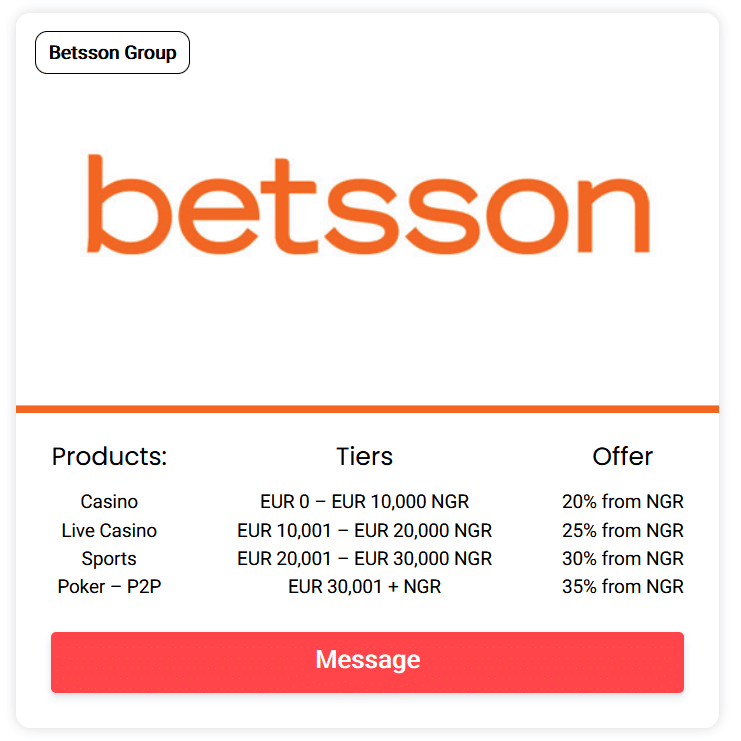
Revenue Share, also known as RevShare is regarded as one of the most tempting model of iGaming commissions. In contrast to iGaming CPA, where you earn a commission once per action, RevShare iGaming affiliate programs offer recurring payments for as long as the linked consumer remains to use the brand’s services (or a set duration agreed upon by the affiliate and the brand). The affiliate is paid a percentage of the overall revenue amount.
RevShare is more than just a traffic generator. Affiliates need to produce continuous sales and be able to convert customers’ initial curiosity into a financial result when working in a RevShare model. Although this commission type involves more effort on the affiliate’s part, it is unquestionably profitable with the greatest levels of income.
Because of its recurring nature, the RevShare iGaming affiliate programs are likely to cost more for operators, especially if they offer their partners lifetime ownership deals, which are quite common nowadays, and need to keep paying a portion of their revenues to their affiliates. However, these added costs are quickly offset by the fact that affiliates will need to provide higher quality traffic to generate a sustainable income for themselves, meaning in many cases RevShare deals could benefit both parties greatly.
RevShare is paid as a percentage of total revenue produced, so the percentage might vary from plan to plan. For Sportsbooks, it could range from 15% to 40% (sometimes higher), whereas Casinos and Pokers can go up to 60%.
Hybrid iGaming Commission
The hybrid structure of iGaming commissions combines a set iGaming CPA commission rate with a portion of the operator’s revenue from driven players through a RevShare model. Through hybrid iGaming commissions, the affiliate receives payment when a user registers on the operator’s website and/or deposits funds, depending on what monetizable activity the two parties have chosen ahead of time, but it doesn’t stop there. The affiliate continues to receive a percentage from the generated revenue as long as the player referred by them keeps playing and wagering on the operator’s website, although this is subject to the operator offering lifetime ownership deals to its partners.
NOTE: In such cases, a given hybrid deal’s RevShare and iGaming CPA commissions are typically offered at substantially lower rates than their standalone commission plan counterparts, although for some iGaming affiliates hybrid deals may present a better value than RevShare or CPA.
Fixed Fee iGaming Commission
A fixed fee iGaming commission is an agreed-upon amount that an affiliate requests in order to list the operator on its website. This has the effect of allowing the affiliate to represent its operator partners in a more objective manner and in a fairer setting, as aggressively pushing casinos that are proven to outperform the competition won’t have the same effect on the affiliate in terms of revenue growth. Consequently, advertisers using this type of iGaming commissions also produce higher-quality content for their readers, which further enhances their appeal.
Typically, these affiliates are well-known brands with a high level of authority among gamers who rely on their reviews. For example, in order to be listed on AskGamblers’ website, the operator has to pay a one-time fixed fee of 2500 EUR. Additionally, many firms utilizing the fixed fee iGaming commission model also make use of a traditional iGaming commission plan at a lower rate to further grow their revenue while maintaining the benefits of fixed listing fees.
RevShare vs CPA
The model of iGaming commissions you’ll include in a commission plan hugely affects the efficiency of your affiliate program.
CPA iGaming commission is for short-term gains with predictable costs.
- The pros of iGaming CPA commission include easier budgeting for operators, quick earnings with less effort for affiliates.
- However, one-time payments are not very motivating for affiliates, and there’s a risk of losing out on long-time revenue from loyal partners.
CPA commission is best if you’re looking for quick player acquisition, hence, affiliates with a focus on fast traffic turnover.
RevShare, on the other hand, pays affiliates to focus on retention and quality traffic.
- The steady income from RevShare gambling affiliate programs encourages affiliates to put in consistent effort for better and more targeted traffic.
- As a downside, RevShare is requires more time and effort from affiliates to see substantial results, and is costlier for operators.
RevShare commission is best for you if you have a long-term goal of quality traffic, lasting player engagement, and affiliates with slower-growing but loyal audiences.
In the ultimate RevShare vs CPA debate, you don’t have to favor short-term rewards over long-term growth or vice versa. You can always go for a Hybrid commission model to get both, or a Fixed Fee to guarantee yourself consistent promotion without the performance metrics.
It’s best to include multiple iGaming commission models in your commission plan, because choosing a single one-size-fits-all model doesn’t create the right environment for long-term partnerships. A customized structure of iGaming commissions allows to offer different rewards for different types of affiliates, all with a fair compensation system.
How to set up an iGaming commission plan
To develop a winning iGaming commission plan, you have to keep a couple of things in mind. Here’s a few steps that are worth a mention:
1. Analyze the market and your competitors to ensure that you are not offering something out of the ordinary. Analyze what they have to offer and what iGaming commission plans are available in the industry.
2. Don’t chase the highest commission. The best commission plan is not the highest, but rather the one allowing both the operator and the affiliate to make money at the same time, without one being overpaid or underpaid.
3. Focus on relevance and conversion/target the right market. Instead of chasing the highest commission plan, improve your brand’s relevancy and conversion. Make sure that your bonuses, language, and offers are as relevant as possible in the market in which you have decided to promote your website.
4. Prioritize localization. This applies to both gambling websites that only operate in a few selected jurisdictions and to online casinos that offer their services all across the globe, as players are always looking for the most convenient way to enjoy the gambling pastime.
5. Choose the right affiliates. You can’t work with any affiliate–each one targets a different audience with varying interests, desires, spending habits, and more.
The last point is particularly important for sports betting operators, as betting varies by not only sports but also by format, including options like micro betting, live betting, etc.
What to avoid in an iGaming commission plan
With the best practices covered, here’s what casino affiliate programs should avoid at all costs when developing an iGaming commission plan:
1. Don’t propose big payments only to reduce them over time. While it is common practice in the industry for operators to offer special deals on iGaming commissions to attract new partners, promote those as special offers to not confuse and mislead prospecting partners. It is also in your favor as an operator to keep the long-term iGaming commissions sustainable, so avoid changing terms too often.
2. Don’t add any hidden costs to your revenue. It will be clear to affiliates within a short amount of time, and you will quickly lose authority. Having hidden or obscured fees is a practice that is frowned upon by the entirety of the industry and one of the biggest reasons why affiliates blacklist casino operators.
Examples of hidden revenue costs: Having a variety of admin fees, service fees, or support fees, which most of the time serve no purpose other than to let a low-quality operator advertise standout commission deals, while not actually paying them to prospecting affiliate partners.
3. Make sure there are no hidden terms. This is another technique used by unfair and lower-quality operators to artificially inflate the quality of their offerings. High-quality iGaming affiliate programs offer partners lifetime ownership deals, meaning that each of an affiliate’s directed players will be generating revenue for them for as long as they keep playing on the operator’s website.
An example of a hidden term: The affiliate suddenly discovers that the player no longer belongs to them, because of a term in the agreement that unlinks the player after x months from the affiliate.
4. Don’t delay payments. Delaying your payments may have major effects, including a deterioration in your relationship with the affiliate
5. Avoid overcomplicating the iGaming commission structure. A complex commission plan can confuse affiliates, making it difficult for them to understand how much they will earn. The frustration and mistrust will drive affiliates away. Keep the structure of your iGaming commissions simple, transparent, and easy to calculate.
Once your affiliate program has its iGaming commission plan up and running, you can make things simpler for yourself and sign up on AffPapa, the ultimate iGaming directory, where you’ll be able to connect with iGaming affiliates and message them directly through the platform.
iGaming Commissions: FAQs
What are iGaming commissions?
iGaming commissions are payment models that casino operators use to reward affiliates for bringing in players, with earnings based on the revenue those players generate.
How do iGaming affiliates get paid?
After calculating the revenue generated by the players an affiliate refers, operators apply the agreed commission structure. Payments are usually made on a monthly basis, often via bank transfer, e-wallet, or crypto, depending on the operator. Affiliates typically receive a report of their earnings and player activity beforehand.
What are the most common iGaming commission models?
The most common iGaming commission models are RevShare, CPA, Hybrid (a mix of both), and Fixed Fee.
What is an iGaming commission plan?
An iGaming commission plan is a set of commission models, designed by an affiliate program and offered to affiliates to manage payments based on player activity.
Can affiliates scam operators?
Yes, there are many different forms of iGaming affiliate fraud, such as using bot traffic, stolen customer information, redirected traffic, cookie stuffing, etc. However, you can work with AffPapa, the ultimate iGaming directory, and do honest business with affiliates without scams or fraud.
Delivering fresh updates on casino traffic trends, regional market highlights, practical guides for iGaming operators and affiliates—everything to stay informed and grow in the iGaming space. With a Bachelor's degree in Communication, my focus is on breaking down complex topics into clear and practical content.

